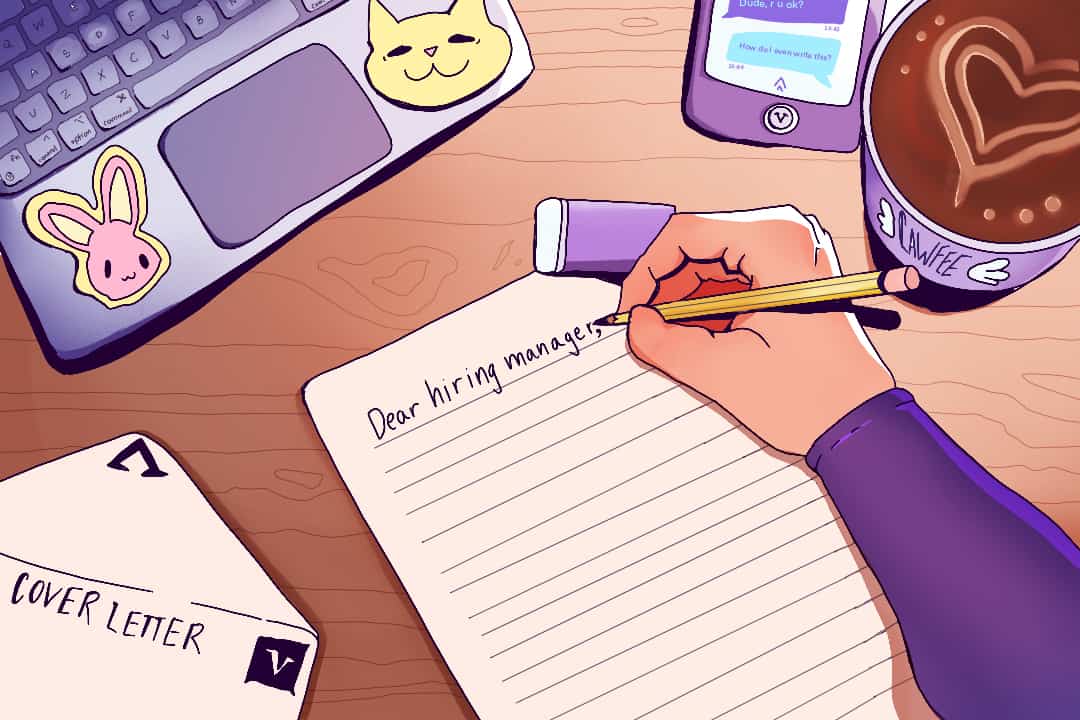With the onset of recruitment season, students are scrambling to update their résumé and write cover letters. Tailoring cover letters to specific jobs can be a frustrating task, especially since applicants often apply to many jobs at once. This has sparked a debate about the utility of cover letters, and whether recruiters read and value them. Nonetheless, it all comes down to the recruiters’ personal preferences, and therefore all applicants should be aware of the best practices for writing cover letters.
The best practices for writing cover letters
An applicant’s cover letter should be original and unique to themself. The Varsity reached out to Katherine Ye, a U of T graduate and consulting analyst at Accenture, to talk about her experiences on this matter. She explained that the most important aspect of composing a cover letter is storytelling. She described this as “piecing together details from your résumé into a narrative that leads the recruiter to an understanding of why you are applying for the job.”
Ye emphasized that an applicant should offer details on why they would be a good fit for the team, and what draws them to the role and field. She also suggested drawing from life experiences to highlight interest in the job. While templates can help organize these thoughts, the applicant should also give the recruiter a flair of their personality through the cover letter.
Storytelling is an important aspect of a cover letter, but you should also keep it concise and specific. People may feel the need to include unnecessary details and experiences with the hope that it will make them seem more accomplished. This strategy will not achieve the desired effect. Recruiters tend to skim through applications; the lengthier the cover letter, the more unwelcome it will be.
Include only skills and experiences that are relevant to the job you’re applying to. Doing so will keep the cover letter more simple and readable, while also demonstrating your awareness of what’s expected as well as a genuine interest in the role. It’s always better to be short and sweet than unnecessarily long and drawn out.
Finally, always remember to include contact information. The applicant should put their full name, email address, phone number, and portfolio at the top of the page. The applicant should also remember to keep things personal. Always use the hiring manager’s name when addressing the letter, rather than a generic salutation such as “Dear Recruiting Department,” as the former initiates familiarity with the recruiter.
Are cover letters even necessary?
There has been much debate over whether cover letters are an important part of the job application process. Ragini Holloway — who worked as vice president, people and was involved in recruitment at personal finance company Credit Karma — reinforces this view. She believes that they are a complete waste of time, considering that she has never read a single cover letter while recruiting applicants.
She also claimed that they’re not always reflective of an applicant’s experience. Parmar further explained that since cover letters are usually sent out to many companies at once, they’re often riddled with mistakes, such as addressing the wrong company or including irrelevant information, which devalues them even more.
On the contrary, some argue that cover letters are indeed important. A recent study conducted by researchers at Western Michigan University discovered that 56 per cent of employers expect applicants to send in cover letters, and a further study found that 26 per cent of recruiters regarded them as crucial to their decision making. Business journalist Bart Turczynski agrees with this viewpoint, pointing out that even if the recruiter skips over the cover letter, there is a good chance that it might be passed onto a manager, especially if it’s a smaller company.
Ultimately, the value of cover letters comes down to the recruiters’ personal tastes and the size of the company, so it is important to possess the skills to write a strong and tailored cover letter. As Ye noted, students coming out of their undergraduate studies and looking for work will likely have similar qualifications and experiences; writing a strong cover letter could be what makes a difference to help you get your desired job.


